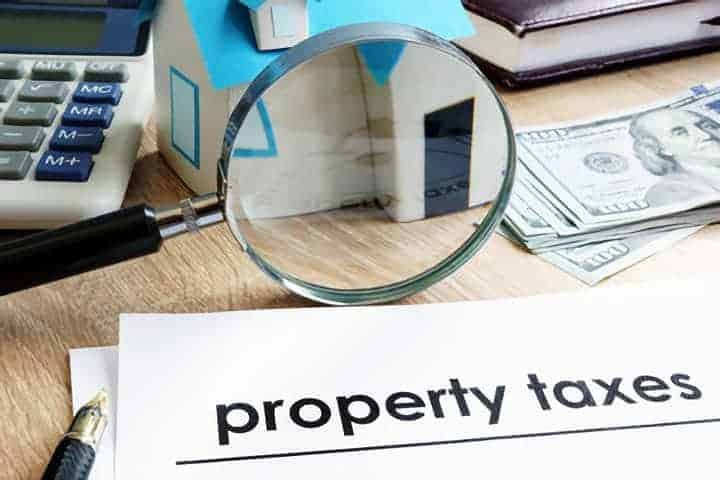Whether you are a real estate baron with multiple properties, or just recently started to rent out a property, we know taxes can be a bit of a tricky subject to tackle for landlords submitting a tax return. And that’s where the Filing Taxes come to play.
This article covers how to complete and file a tax return for a rental property in Canada. All rental income must be reported on your personal, corporate, or partnership tax return (depending on how you own the property).
What is meant by Rental Income for Tax purposes in Canada?
Rental income is any payment you receive being a landlord for the use or occupation of the property you rented out. You must include all amounts you receive as rent in your gross income and report it on your tax return. For the amounts to be included it is must to have an expert advice in this section.
Complete Form T776 ‘Statement of Real Estate Rentals’
Form T776 must be completed by the real estate or property owners, it is an integral part of the tax return. This form is used to determine the gross rental income, loss, all expenses that you may deduct during the calendar year. If you need some help when completing the form T776, you may check the Interpretation Bulletin IT-434, it provides detailed instructions. The boxes to be filled in this form are as following:
- Identification: It requires your name, social insurance number, the period of filing, address, business number, etc.
- Information about the partners and co-owners: it requires names, net income, shares, addresses, ownership percentage of each partner/co-owners.
- Income: it requires addresses of rental dwelling, total gross rental income.
- Expenses: this section describes expenses such as insurance, advertising, travel, utilities, property taxes, office expenses, interest, salaries, wages, and benefits, etc.
You must send this form to the Canada Revenue Agency for processing and if you don't know how to do that , contact an accountant.
Determine Rental Income to Report on your Rental Tax Return
Rental income is income you earn from renting a property that you own or have use of. You can own property by yourself or with someone else. Rental income includes income from renting a house, apartments, rooms, space in an office building, or other real or movable property. Follow the below-mentioned steps to declare your rental income:
- Determine Gross Rental Income, which is the total amount of money you will get out from renting out your property without accounting for costs or expenses. It is calculated by multiplying the monthly rent by 12 (i.e. 1 year) and then factoring in the vacancy rate.
Gross Rental Income = Monthly rent * 12 months * (1-( vacancy rate %)/ 100)
Note: The vacancy rate (%) is the amount of time your property is empty and not making money.
- Calculate the Net Rental Income. It is your gross rental income after taking into account the operating expenses and financing costs (loan or mortgage payments)
Net Rental Income = Gross Rental Income – operating expenses – financing costs
Note: Prepaid rent is not a rental income, but it is a tenant’s deposit that you hold onto. It is only recognized as revenue when it is applied to the month (usually the last month of the rental term), to which the prepaid rent relates.
Compute Deductible Expenses
The significant benefit of disclosing rental income on your tax returns is the ability to reduce income by claiming deductible expenses. The following criteria are set by CRA, to determine which expenses are deductible:
- Expenses should be incurred for earning rental income.
- The amount of the expense should be reasonable in a specific situation.
Following is the list stated by CRA of deductible expenses:
- Advertising
- Insurance
- Interest and bank charges
- Office expenses
- Professional fees (includes legal and accounting fee)
- Management and administration fees
- Repairs and maintenance
- Salaries, wages, and benefits (including employer’s contributions)
- Property taxes
- Travel
- Utilities
- Motor vehicle expenses
- Other rental expenses
- Prepaid expenses
Claiming Capital Cost Allowance (CCA)
You might own a depreciable property, such as a building, furniture, or equipment to use in your rental activity. You cannot deduct the cost of the property when you calculate your net rental income for the year. However, these properties may wear out or become obsolete over time, you are allowed to deduct their cost over a period of several years. The deduction is termed as capital cost allowance (CCA).
CCA is an annual tax write-off, calculated as a percentage of the property (excluding land). How much CCA you can claim each year depends on when you acquired the property and the CCA class to which it belongs. The CRA has assigned classes to particular types of depreciable property, and there are assigned rates for each class. The CCA schedule on CRA Form T2125 will guide you through these calculations when you are preparing your taxes.
Filing your tax return for rental property can be a tricky business. If you find yourself confused or overwhelmed, as could be the case being a landlord, feel free to reach out to Filing Taxes at 416-479-8532. Schedule an NTR engagement appointment with us and take the first step towards proper management of your finances.

